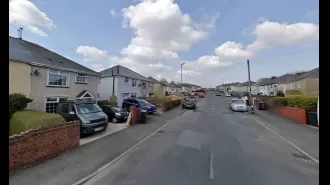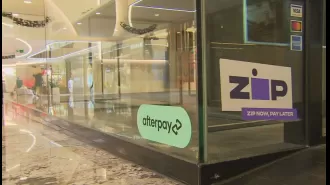Why is poverty still a taboo in the UK, despite the fact that millions of people live in it?
Money embarrassment makes it harder to ask for assistance.
May 18th 2024.

In today's world, many of us are facing financial struggles. The cost of living is skyrocketing, and it seems like every day brings a new bill or expense. As a result, more and more people are being forced into poverty. In fact, government statistics show that around 14.4 million people were living in poverty in the UK in the year 21/22 - that's 1 in 5 people. However, given the current cost of living crisis, it's safe to say that the actual number is much higher.
According to the Joseph Rowntree Foundation, in 2022, over 3.8 million people were living in destitution, or what is also known as 'absolute poverty'. This is a staggering 61% increase since 2019, with more than 1 million of those affected being children. It's a heartbreaking reality, but what's even more troubling is the fact that poverty is often a topic that is hushed and avoided.
Why is it that in a time where many of us are struggling to make ends meet, poverty is still a taboo subject? Well, as is often the case with matters concerning the British public, it boils down to shame. The Joseph Rowntree Foundation, in partnership with Lancaster University, recently released a report on the stigma surrounding poverty. It reveals just how much this stigma not only keeps people trapped in poverty but also pushes them further into destitution.
In their report, the JRF states, "We believe that stigma is a powerful force that perpetuates poverty and intensifies inequalities in terms of wealth, health, and opportunity. Reducing the grip of stigma is a crucial step towards promoting progressive social change." In simpler terms, because poverty and being poor are seen as shameful, people are less likely to talk about it or seek help. This not only prevents them from breaking free from poverty but also discourages others from speaking up and breaking the cycle.
We see this happen every day, in both big and small ways. Perhaps you have a friend who always declines invitations, claiming to be too tired, when the truth is they can't afford to go out. Or maybe you have a colleague who feels embarrassed when someone comments on their small homemade lunch because they are trying to make their food last. Then there are the kids who can't go on school trips or attend parties, and the family members who worry about not being able to afford gifts for Christmas or other significant events.
A big part of the problem, according to the report, is the public's perception of poor people. There is a widespread belief that they don't want to work and that those who are disabled and unable to work are faking it to receive benefits. This misconception also affects how people judge what poor individuals choose to spend their limited funds on. Last year, a YouGov survey revealed that 89% of people believed that those on benefits should not be able to afford to get their nails done, and 72% thought they shouldn't be able to treat themselves to a takeaway once a month. Additionally, 24% of respondents said that only those who work should be able to pay their bills, and 26% said only workers should be able to afford healthy food.
However, as the JRF report highlights, the root of the problem is not the individuals themselves, but the systems that keep them trapped in poverty and make them feel ashamed. Heather Cody, from the JRF Stigma Free Futures team, says, "No one should be defined by their relationship or ability to work. We need to separate work from one's worth. Work does not equal worth." Stigma and shame surrounding poverty can make those who are poor feel like they are the ones who need to change, when in reality, it's the systems that need to change.
Charities and campaigners, such as the JRF, have found "an unprecedented rise in poverty" in the UK, which they argue should not be happening in one of the wealthiest countries in the world. The report also points out that the way powerful figures such as politicians and some parts of the media portray poverty as something that people bring upon themselves further adds to the public's negative perception of the poor. This only serves to deepen the shame and fear that prevents people from speaking up about their struggles.
To break this cycle of shame and stigma, the report suggests that we need to reframe poverty as something that can happen to anyone, not something to be ashamed of. "The first step to combating stigma is realizing that it's not your fault, that it's caused by factors beyond your control, and that you are not alone. Together, we can stand up against it," says Steve Arnott, founder of Beats Bus Records and member of the JRF Stigma and Poverty Design Team.
Being poor in a time when just surviving day-to-day life is a struggle should not be something to be ashamed of. But until the stigma surrounding poverty is dismantled, poverty rates will continue to rise. Do you have a story to share about your experience with poverty? We would love to hear from you. Please reach out by sending an email.
According to the Joseph Rowntree Foundation, in 2022, over 3.8 million people were living in destitution, or what is also known as 'absolute poverty'. This is a staggering 61% increase since 2019, with more than 1 million of those affected being children. It's a heartbreaking reality, but what's even more troubling is the fact that poverty is often a topic that is hushed and avoided.
Why is it that in a time where many of us are struggling to make ends meet, poverty is still a taboo subject? Well, as is often the case with matters concerning the British public, it boils down to shame. The Joseph Rowntree Foundation, in partnership with Lancaster University, recently released a report on the stigma surrounding poverty. It reveals just how much this stigma not only keeps people trapped in poverty but also pushes them further into destitution.
In their report, the JRF states, "We believe that stigma is a powerful force that perpetuates poverty and intensifies inequalities in terms of wealth, health, and opportunity. Reducing the grip of stigma is a crucial step towards promoting progressive social change." In simpler terms, because poverty and being poor are seen as shameful, people are less likely to talk about it or seek help. This not only prevents them from breaking free from poverty but also discourages others from speaking up and breaking the cycle.
We see this happen every day, in both big and small ways. Perhaps you have a friend who always declines invitations, claiming to be too tired, when the truth is they can't afford to go out. Or maybe you have a colleague who feels embarrassed when someone comments on their small homemade lunch because they are trying to make their food last. Then there are the kids who can't go on school trips or attend parties, and the family members who worry about not being able to afford gifts for Christmas or other significant events.
A big part of the problem, according to the report, is the public's perception of poor people. There is a widespread belief that they don't want to work and that those who are disabled and unable to work are faking it to receive benefits. This misconception also affects how people judge what poor individuals choose to spend their limited funds on. Last year, a YouGov survey revealed that 89% of people believed that those on benefits should not be able to afford to get their nails done, and 72% thought they shouldn't be able to treat themselves to a takeaway once a month. Additionally, 24% of respondents said that only those who work should be able to pay their bills, and 26% said only workers should be able to afford healthy food.
However, as the JRF report highlights, the root of the problem is not the individuals themselves, but the systems that keep them trapped in poverty and make them feel ashamed. Heather Cody, from the JRF Stigma Free Futures team, says, "No one should be defined by their relationship or ability to work. We need to separate work from one's worth. Work does not equal worth." Stigma and shame surrounding poverty can make those who are poor feel like they are the ones who need to change, when in reality, it's the systems that need to change.
Charities and campaigners, such as the JRF, have found "an unprecedented rise in poverty" in the UK, which they argue should not be happening in one of the wealthiest countries in the world. The report also points out that the way powerful figures such as politicians and some parts of the media portray poverty as something that people bring upon themselves further adds to the public's negative perception of the poor. This only serves to deepen the shame and fear that prevents people from speaking up about their struggles.
To break this cycle of shame and stigma, the report suggests that we need to reframe poverty as something that can happen to anyone, not something to be ashamed of. "The first step to combating stigma is realizing that it's not your fault, that it's caused by factors beyond your control, and that you are not alone. Together, we can stand up against it," says Steve Arnott, founder of Beats Bus Records and member of the JRF Stigma and Poverty Design Team.
Being poor in a time when just surviving day-to-day life is a struggle should not be something to be ashamed of. But until the stigma surrounding poverty is dismantled, poverty rates will continue to rise. Do you have a story to share about your experience with poverty? We would love to hear from you. Please reach out by sending an email.
[This article has been trending online recently and has been generated with AI. Your feed is customized.]
[Generative AI is experimental.]
0
0
Submit Comment





